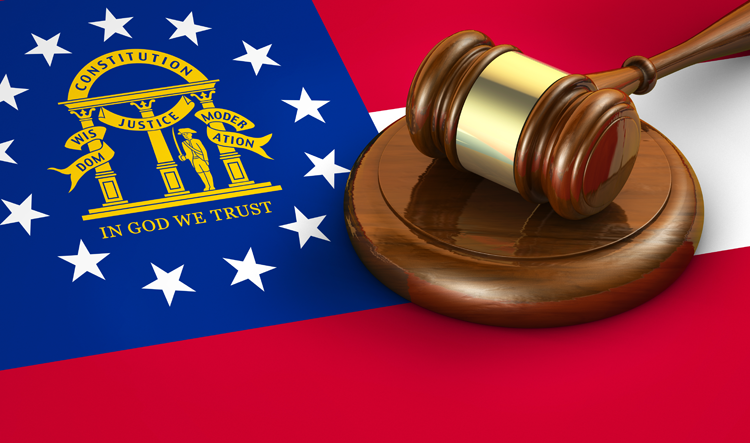Top state court rules against public defender who sued ACLU for calling him 'crooked'

Image from Shutterstock.
A public defender is a public official who must prove actual malice in his defamation lawsuit against the American Civil Liberties Union for a blog post calling him “crooked,” the Georgia Supreme Court has ruled.
The state supreme court ruled against Glynn County, Georgia, part-time public defender B. Reid Zeh in an Oct. 19 decision. The court said Zeh had not proved actual malice based on the current record, but he should get a chance to make out a claim with additional discovery.
Law360 has coverage.
The ACLU blog post had alleged that Zeh charged a client $2,500 for services that should have been free. Zeh said he represented only misdemeanor clients in his public defense practice, and the case cited by the ACLU was being transferred to felony court.
The blog post also alleged that Zeh didn’t visit his misdemeanor clients in the detention center and didn’t secure bail reductions for them, thereby perpetuating the county’s wealth-based incarceration system.
The ACLU post relied on allegations in a federal court case that it filed, along with declarations by the client and his mother. Zeh contended that the ACLU should also have reviewed county court records and should have contacted him before publishing the post.
The ACLU had sought dismissal of Zeh’s defamation suit under Georgia’s anti-SLAPP statute, which is intended to protect freedom of speech in matters of public interest. The state supreme court said the trial judge should have granted the ACLU motion, based on the current record.
The Georgia Supreme Court said Zeh was a public official because he had substantial responsibility as the appointed public defender for all indigent misdemeanor defendants in the county. Zeh provided the legal services, and he also determined who was eligible to receive them. Another factor in the ACLU’s favor was that its blog post related to Zeh’s official conduct.
The court said the ACLU’s lack of further investigation doesn’t establish actual malice, at least on the current evidence.
“Here, the existing record shows that the ACLU’s statements in the blog post were not fabricated, imagined or based wholly on an unverified source like an anonymous telephone call,” the Georgia Supreme Court said. “Instead, the statements relied on pleadings and sworn declarations filed publicly in a federal court case, which were not inconsonant with information that the ACLU Foundation lawyers had previously gathered.”
See also:
ABAJournal.com: “ ‘I can’t keep up with you on this stuff,’ busy trial lawyer tells Georgia justices in public defender’s libel suit”
ABAJournal.com: “Afternoon Briefs: ACLU wants lawyer’s libel lawsuit tossed; Dershowitz gives limited advice in MyPillow CEO suit”



